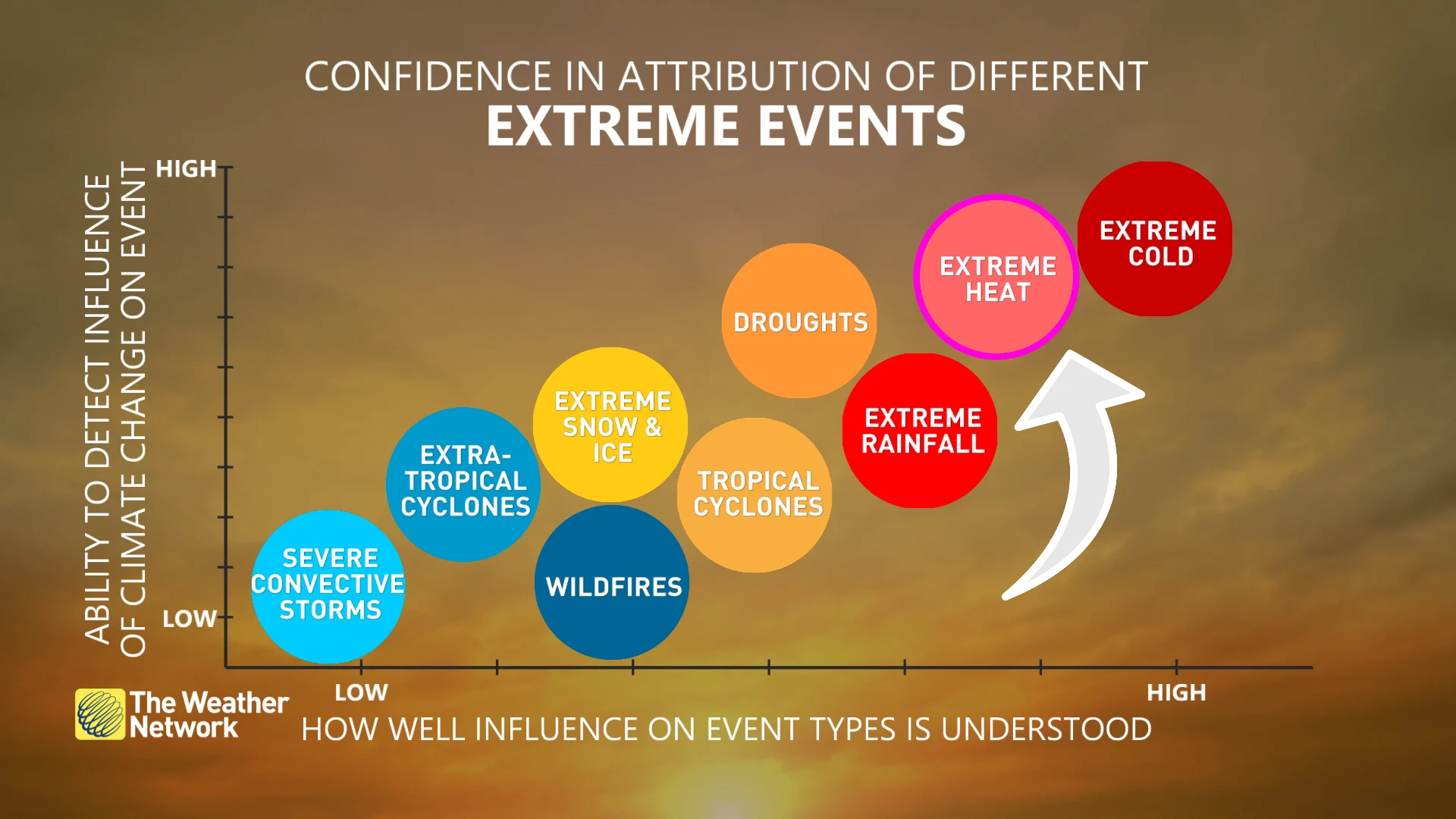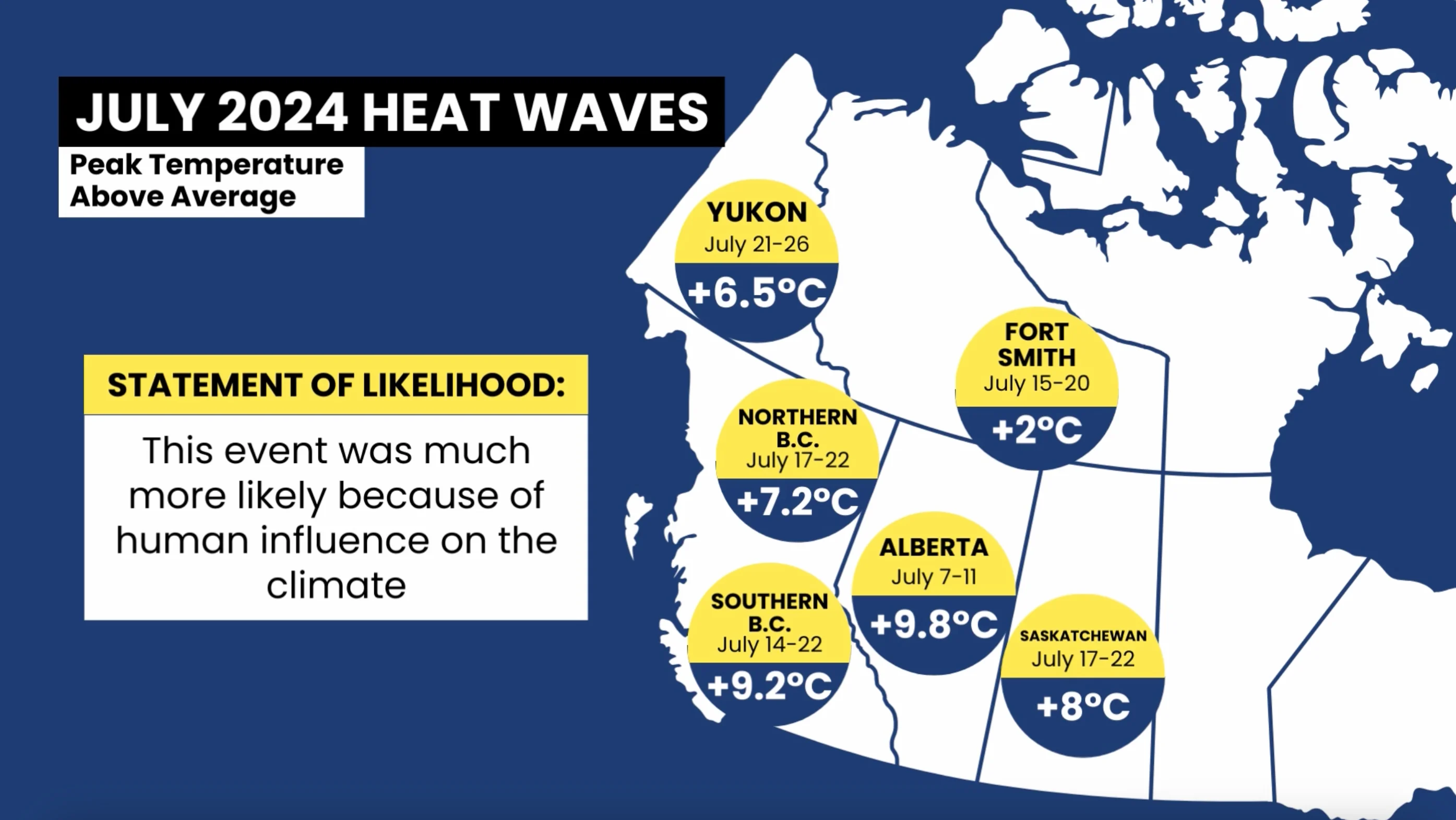
Canadian heat waves far more likely in the era of climate change
In summer 2024, 37 heat waves across the country were analyzed as part of a pilot initiative--a rapid extreme weather event attribution system. The goal: To quantify how human-caused climate change impacts the likelihood of heat waves
"When it’s in the 40s outside, it’s warmer in here. And, it just goes on for weeks," said Julie Leggett, a resident of Nee Glasgow, N.S., in an interview with The Weather Network in 2024.
Heat waves can be especially dangerous for people without air conditioning.
SEE ALSO: Climate change exacerbated Canada's summer heat waves: ECCC
So, you might want to buy one soon, if you're in Eastern Canada, as another hot summer is in store, according to Environment and Climate Change Canada (ECCC).
“In the East, the probability for a warmer-than-normal summer, on average, is highest. It’s definitely higher in the East than elsewhere," said Jennifer Smith, an ECCC meteorologist, in a recent interview with The Weather Network.

Last summer, 37 heat waves across the country were analyzed as part of a pilot rapid extreme weather event attribution system. The goal is to quantify how human-caused climate change impacts the likelihood of heat waves shortly after they occur, in an effort to help inform adaptation planning.
The system works by using climate models to compare the frequency of heat waves during the 1800s, when atmospheric greenhouse gas levels were lower before the Industrial Revolution.
A colour-coded scale was created to indicate how much more likely an extreme weather event was to occur, specifically because of human influence on the climate.

It’s already been used this year to analyze a four-day heat wave that occurred in Alberta at the end of May.
“Averaged over all of Alberta, the peak temperature during the event was nearly 29 C, which is more than 11 C above normal for this time of year," said Bill Merryfield, a ECCC research scientist, in a recent interview with The Weather Network.
The Alberta heat wave was at least two to 10 times more likely to occur in the climate of today, classified as “much more likely to occur because of human activity.” The four 2024 Northern Canada heat waves were 10 times more likely--so, in other words, far more likely.
“We can expect similar events to occur more often as our climate continues to warm," said Merryfield.

